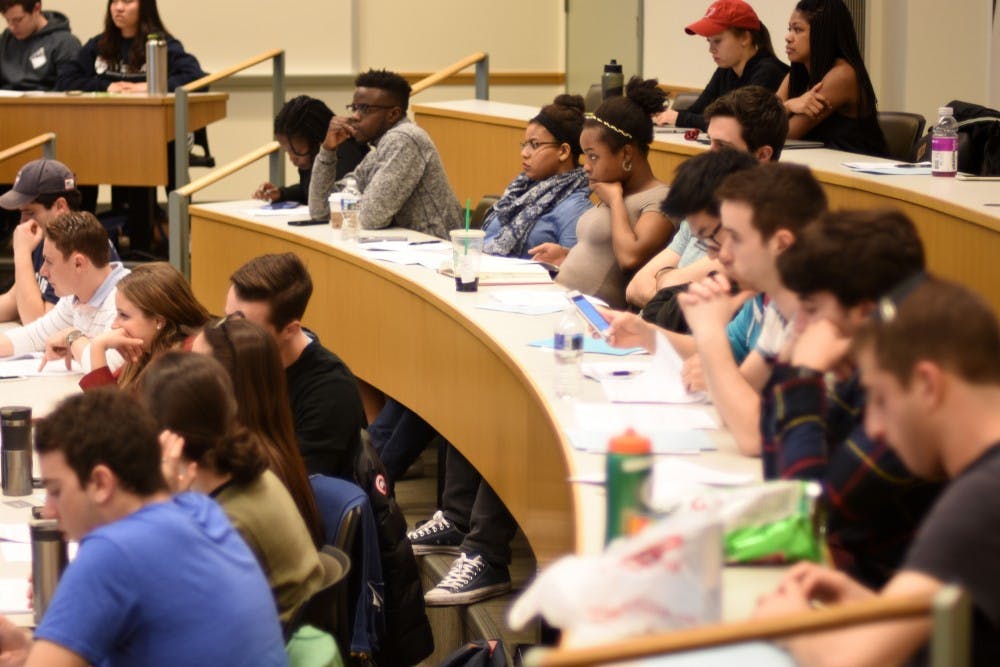While the Ivy League schools differ in size, location and culture, one issue has recently united all eight universities — the burden of application fees for low-income students.
On Wednesday, Brown Student Body President Viet Nyugen penned a letter calling for universities to automatically waive application fees for anyone who applies for financial aid or will be the first in their families to attend college. The letter, which described Nguyen’s “humiliating” and “unnecessary” experience of emailing colleges for fee waivers, garnered support from both Penn Vice President of the Undergraduate Assembly and College junior Sola Park and PennFirst board member and College sophomore Candy Alfaro.
“With the work that I do on the UA, we focus a lot of our efforts on first generation and low income students,” Park said. “It’s something that I and the UA as a whole and the administration want to push forward.”
Alfaro recalled her senior year of high school, when she grappled with the various fees of applying to college.
“We talk a lot being first-generation, low-income in college, and we forget what it was like when we were seniors in high school and all of the fees we had to pay,” Alfaro said.
“If you know that there’s already this hurdle just applying to these schools, what hurdles are you going to face later on?” PennFirst board member and College sophomore Lyndsi Burcham added. “It’s really discouraging, and it feels like you’re never going to have a place where you can be comfortable financially at this institution.”
When asked for comment on the letter, Dean of Admissions Eric Furda spoke highly of Penn’s current policy.
“What I’m most proud of at Penn is within the Common Application, if a student has already shown that they qualify for fee waiver, we waive it,” Furda said. “We don’t do any other follow up.”
Furda said any applicant who submits a fee waiver on the Common Application and has it verified by a guidance counselor does not need to pay the application fee.
He characterized the process of applying for a fee waiver on the Common Application as “efficient” and “simplified,” adding that most applicants have already demonstrated their financial need in the past and therefore don’t need to do so again.
“By the time you apply to college, you’ve already gone through any number of processes: testing, you qualify for free and reduced lunch, or [applicants are] QuestBridge students so they’re already within a [community-based organization] type of context,” Furda said. “These students have already proven that they require a fee waiver or some financial support.”
Penn’s policy is commonplace among major universities.
Still, Burcham said she worries that Penn’s waiver system won’t have much of a larger impact in combatting inequality.
“There are other variables that determine why or why not these students get in that we don’t think about,” Burcham said. “It’s not about us being low-income or first-generation, it’s just that we didn’t have the same opportunities as other students.”
Park viewed the initiative as a part of the UA’s ongoing efforts to foster a more welcoming environment for low-income and first-generation students, such as increasing transparency of hidden course costs.
“I see this as a long-term project especially because it doesn’t end with just waiving the application fees,” Park said. “We talked about how first-generation, low-income students’ Penn experience is really defined by their status ... it plays out into the social scene and all these other scenes at Penn.”









